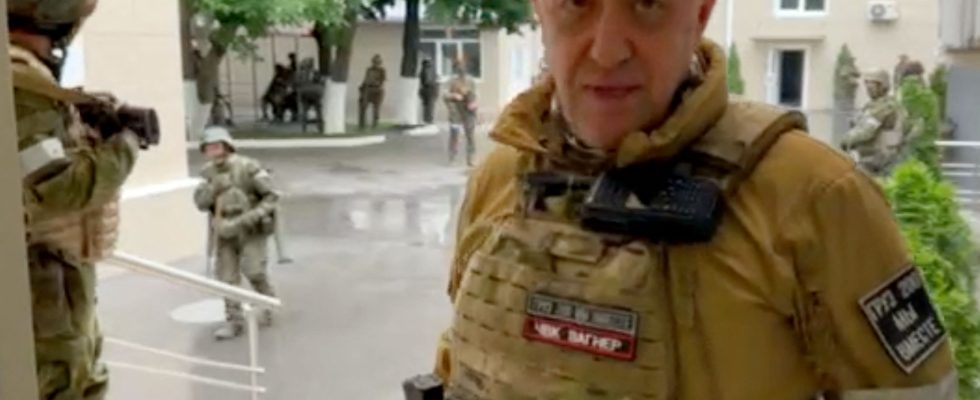It was 9:25 p.m. Moscow time when the private military company Wagner declared war on the Russian army. As usual, it was through an audio message broadcast on Telegram that his boss Evgueni Prigojine announced this mind-blowing decision. A response, he says, to a missile strike on a camp of Wagner group fighters, for which he attributes responsibility to his sworn enemy Sergei Shoigu, Russian Minister of Defence. “We must stop the evil represented by the military leaders of the country,” he said in substance. Then, in a series of increasingly lunar sound recordings, he clarifies his plan. “There are 25,000 of us,” he assures us, and all are marching on Rostov, a large city in southern Russia where Sergei Shoigu is said to be. “This is not a coup”, he assures, “but a march for justice”. He assures Vladimir Putin of his loyalty.
Lies, replies the Russian Ministry of Defense. At the same time, the prosecution announces the opening of an investigation for “organizing an armed rebellion”, and the FSB calls on Wagner’s fighters to refuse to obey their leader and to place him in detention. Panic seizes social networks and the Russian press. In videos apparently shot simultaneously, two Russian generals, General Alexeiev and General Surovikin, call on Prigozhin and his men to “stop”. On state television, three successive specials interrupt the entertainment programs, repeating elements of the language of the authorities on a loop. The highway linking Rostov to Moscow is blocked, and in the Russian capital, the army deploys tanks in front of official buildings.
“We are marching towards Moscow”
On the night of Friday to Saturday, Prigojine launches a new burst of audio messages. He assures us that his troops crossed the Russian-Ukrainian border without resistance, welcomed with open arms by the Russian border guards, that the troops sent to arrest his men refused to fight, and that Wagner will soon enter Rostov. No image comes to support his statements… until Saturday morning. Around 7:30 a.m. – Moscow time – Wagner’s Telegram accounts relayed two videos.
On one of them, Evgueni Prigojine, in battle dress and surrounded by his men, films himself in the middle of the staff of the military region of Rostov. He claims that his troops have taken control of “all the military buildings in the city”. On the other, Prigojine discusses with the Russian Deputy Minister of Defense, Younous-Bek Evkurov… and General Alexeïev, who appeared a few hours earlier on a video denouncing his actions. “We came here. We want the Chief of Staff, and Shoigu. As long as they are not here, we stay, we block Rostov and we march towards Moscow”.
“Clean the Army”
“According to my sources, Rostov is indeed under the control of Wagner. General Alexeiev is a de facto hostage of Wagner. It is not known where Surovikin is. Moscow does nothing. Junior officers are pro-Wagner”, writes political scientist Dmitry Kolezev. Is Yevgueni Prigojine succeeding in his coup? The question seemed absurd, falling under bad political fiction a few hours ago… For the moment, the boss of Wagner continues to show loyalty to Vladimir Putin. He seizes every opportunity to insist that his operation is only intended to “cleanse the army”. The most likely hypothesis is that Prigojine wants to force the hand of the Kremlin to be given the keys to the Russian army. But it’s hard to imagine that, if he got his way, Yevgueni Prigojine would stop there.
